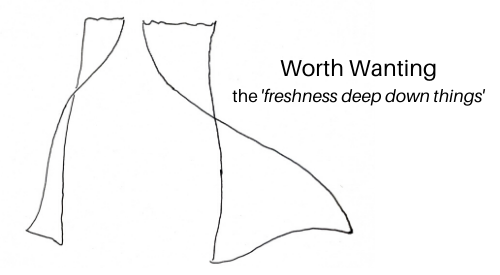* The birds in my neighborhood whose songs I’ve been able to identify by a phone app
*The Coroner’s Lunch, a mystery set in Laos in the mid-sixties
*Setting up this website, as far as I have
*Conversation remotely with grandchildren Jack and Olivia after their day care
*Poet Gwendolyn Brooks at my Wednesday zoom salon
*The Social Security Administration regarding Medicare B signup
These are a few of the things going on in my life these days, all engaging, though not all equally so, nor equally positive. Are they encounters as I use the word here? Where is the freshness I promise? Fair questions, and timely. In this post, I’ll consider just the first question, and leave the second for later. Let me add a few more examples to talk about.
*Rossini’s Armida produced and broadcast by the Metropolitan Opera
*My new bike, the first since I was a boy, and a plan to circumnavigate my city Boston
*My wife and the plans she’s been making for a cottage in New Hampshire over Fourth of July.
*The proposed resolution on police funding being drafted by the Ward 18 Democratic Committee I’m a member on.
*Covid 19: invisible, baffling, scary.
*Black Lives Matter protests
Okay, that’s a full plate. You can see I’m not talking mystical or technical things when I discuss encountering. This is the recognizable stuff of our lives. But are these encounters?
Encounters have several elements. An encounter is 1. an occasion of making common cause 2. with the livingness 3. of an other or otherness addressed as you, that is, in the second person. I’ll start with the final criterion: others and othernesses as you.
Birds, book, bureaucracy, Brooks, bike (all these b words), virus, event planner, opera: each of these can be considered an other, recognized, acknowledged and, yes, addressed (even virtually) as such. After all, they are not me (like my mirror image), not mine (like a bank account), not of me (like a fingernail paring), not for me (like my employees), not (wholly) by me (like a singing a duet.) They don’t just differ from me; they are other than me. By other, I mean particular entities exhibiting otherness. The world is full of others; it’s a plenitude of others, each able to insist and resist, each with a claim to existence as good as our own.
Of course, we most of the time consider entities as its or thems, not yous, and, indeed, usually don’t address them at all, unless they disappoint or frustrate us. It’s more convenient, less confusing. But not when we’re encountering.
The birds I heard through BirdNET are usually invisible though very present in specific places. Tanagers, warblers, flycatchers, vireos and on an on: I’m astonished and delighted. I remember as a schoolchild in fourth grade making a report on the Baltimore oriole illustrated by an awkward picture of a bird almost mythic in its beauty that I had not actually seen. Then to hear it and to know that it really existed and nearby was so thrilling for me. I’m in the realm of Hopkin’s Windhover. I hear you, I said to the singer hidden in the tree. My whole self is here listening to you, oriole. That’s an encounter. It finishes but doesn’t end.
